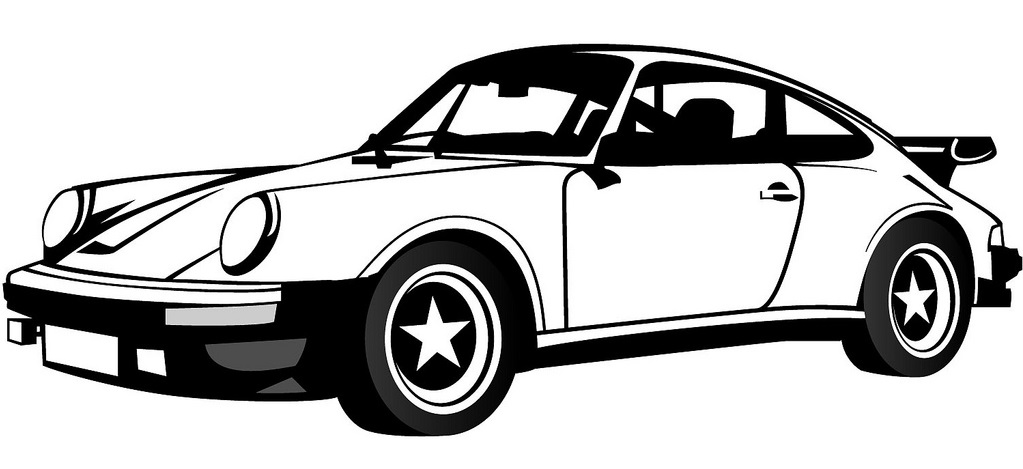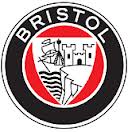A brief history of
Bristol
Introduction
The car manufacturer Bristol has made an important impact on the automotive world. In this article we will give a brief but detailed history of the Bristol marque.
We will look at the origins of Bristol looking at who, why, where and when Bristol was founded. We'll look at the design of the iconic Bristol logo and what are some the more significant Bristol models.
We'll take a glance at what racing history the Bristol has and who some of the most important people have been in the history of Bristol over the years.
Who, where, when and why was
Bristol founded?
Bristol is a British car manufacturer with a rich and fascinating history. The company was founded by Sir George White in 1945, following the end of World War II. The idea behind the formation of Bristol was to repurpose the expertise gained in building aircraft during the war to manufacture high-quality luxury cars. The company was established in Bristol, England, and set out to create vehicles that combined exceptional craftsmanship, performance, and innovation.
One of the primary reasons for founding Bristol was to provide employment opportunities for aircraft engineers who were left without jobs after the war. Sir George White recognized the skills possessed by these engineers and believed that their expertise could be effectively utilized in the automotive industry. By establishing Bristol, he aimed to ensure the continuity of their employment while also creating a new venture that would contribute to the British automotive sector.
The decision to focus on luxury cars was driven by the desire to cater to a niche market and deliver vehicles of the highest standards. Bristol cars were meticulously handcrafted, with an emphasis on quality and attention to detail. The company's commitment to excellence quickly gained recognition, and Bristol cars became renowned for their elegant designs, refined interiors, and powerful performance.
Furthermore, the founders of Bristol sought to create a distinct identity for the brand, differentiating it from other car manufacturers. They embraced innovative engineering techniques, incorporating features such as aerodynamic bodywork, advanced suspension systems, and cutting-edge technologies. The combination of traditional craftsmanship with modern engineering advancements became a hallmark of Bristol vehicles.
Overall, the establishment of Bristol in 1945 was driven by the vision to leverage the skills of aircraft engineers, provide employment opportunities, and produce exceptional luxury cars. The founders aimed to create a unique brand that would stand out in the automotive industry, combining traditional craftsmanship with innovative engineering. This commitment to quality and innovation has defined Bristol throughout its history, making it a respected name in the world of luxury automobiles.
How did the
Bristol logo originate?

How did the Bristol logo originate?
The history of the Bristol logo is closely intertwined with the evolution of the company itself. The initial logo of Bristol featured a stylized representation of the company name, with bold and distinct lettering. This logo captured the essence of Bristol's commitment to quality and craftsmanship, with its clean and elegant design.
As the company progressed and gained recognition in the automotive industry, the logo underwent several transformations to reflect the changing times. In the 1950s, a new emblem was introduced, featuring a circular design with the Bristol name enclosed within it. This logo represented a more refined and sophisticated image for the brand, aligning with the luxurious nature of the cars produced by Bristol.
In the following decades, the Bristol logo continued to evolve, adapting to contemporary design trends and branding strategies. The circular emblem was refined further, incorporating subtle modifications to enhance its visual appeal. The emphasis was on creating a logo that conveyed elegance, prestige, and timeless appeal.
Throughout its history, the Bristol logo has been characterized by its simplicity, clarity, and attention to detail. It has always aimed to symbolize the essence of the brand and the values it represents. The logo has played a crucial role in establishing the visual identity of Bristol and has become an instantly recognizable symbol of the company's commitment to excellence.
Today, the Bristol logo is a testament to the brand's heritage and serves as a reminder of the company's dedication to producing exceptional luxury cars. It continues to evolve alongside the ever-changing automotive landscape, reflecting the values and aspirations of Bristol as it moves forward into the future.
What are some of the significant
Bristol models?
Bristol has a rich history of producing exceptional cars, with a particular emphasis on higher performance models that have captivated automotive enthusiasts over the years. From the early post-war era to the present day, Bristol has consistently pushed the boundaries of engineering and design. Let's explore some of the most significant models from each quarter of Bristol's history.
In the 1950s, Bristol introduced the 400, a groundbreaking model that set the tone for the brand's future. The 400 was powered by a powerful inline-six engine and featured a sleek and aerodynamic body. Its elegant design, luxurious interior, and impressive performance made it a favorite among enthusiasts. It established Bristol as a manufacturer of high-performance grand touring cars.
In the 1960s, Bristol unveiled the 411, which further solidified its reputation for producing exceptional performance vehicles. The 411 boasted a powerful V8 engine, offering exhilarating speed and acceleration. Its sophisticated styling and advanced features made it a sought-after model among discerning drivers.
As the years progressed, Bristol continued to innovate and refine its offerings. In the 1980s, the Bristol Brigand made its debut, representing the pinnacle of performance for the brand at the time. With its turbocharged engine and striking design, the Brigand delivered an unforgettable driving experience.
In the 21st century, Bristol introduced the Fighter, a supercar that pushed the boundaries of performance and engineering. With its carbon fiber body, powerful V10 engine, and exceptional handling, the Fighter showcased Bristol's commitment to pushing the limits of automotive technology.
Throughout its history, Bristol has consistently delivered outstanding performance models that have left a lasting impact on the automotive industry. Each model represents a milestone in the brand's legacy, combining power, elegance, and cutting-edge technology. Bristol's commitment to performance and craftsmanship continues to inspire and captivate enthusiasts around the world.

One of Bristol's Most Iconic Models
Who are some of the most important people in
Bristol's History
Behind the success of Bristol as a car manufacturer are the talented individuals who have contributed their skills, expertise, and passion to the brand. These visionary people have shaped the company's direction, pushed the boundaries of automotive design and engineering, and left a lasting impact on the industry. Let's delve into some of the most significant people associated with Bristol.
One of the key figures in Bristol's history is Sir George White, the founder of Bristol Aeroplane Company, which later expanded into automotive manufacturing. Sir George White's vision and leadership laid the foundation for Bristol's success. His commitment to innovation and quality set the standards that the company continues to uphold today. Under his guidance, Bristol established its reputation for excellence.
Another influential figure in Bristol's story is Sir Stanley Spencer, who played a pivotal role in the company's automotive division. Sir Stanley Spencer recognized the potential of Bristol as a car manufacturer and worked diligently to refine the brand's offerings. His deep understanding of engineering and his passion for performance vehicles drove Bristol to new heights, ensuring that every car bearing the Bristol badge delivered an exceptional driving experience.
In recent years, Tony Crook made a significant impact on Bristol as its chairman. Crook's dedication to preserving the brand's heritage and commitment to craftsmanship was instrumental in maintaining Bristol's legacy. His leadership and strong belief in the brand's values ensured that Bristol remained true to its principles even during challenging times.
Other notable individuals who have contributed to Bristol's success include designers, engineers, and skilled craftsmen who have lent their expertise to creating exceptional cars. Their innovative designs, meticulous attention to detail, and unwavering commitment to quality have helped Bristol establish itself as a respected name in the automotive industry.
The collective efforts of these individuals, along with countless others, have shaped Bristol's identity and reputation. Their unwavering dedication, talent, and passion have enabled the brand to create remarkable cars that embody the spirit of Bristol. Their contributions to the company's success continue to inspire the next generation of automotive enthusiasts and ensure that Bristol remains a revered name in the industry.

One of the most influential people in the history of Bristol
Bristol's Racing History
Bristol has a rich racing history that has seen the brand compete in various motorsport events, showcasing the performance capabilities of their cars. The company's involvement in racing not only served as a platform to demonstrate their engineering prowess but also allowed them to refine their vehicles through the rigorous demands of competitive racing.
One of Bristol's notable racing ventures was their participation in the prestigious 24 Hours of Le Mans endurance race. Bristol cars made their debut at Le Mans in the early 1950s, and although they didn't achieve podium finishes, their presence on the track showcased the brand's commitment to performance and durability. The demanding nature of the race provided valuable insights for the development of Bristol's road cars.
Bristol also had a strong presence in national motorsport championships, particularly in the United Kingdom. The company's cars competed in various races, including the British Saloon Car Championship and the British GT Championship. Bristol's participation in these championships allowed them to showcase their high-performance models and build a reputation for producing formidable racing machines.
Additionally, Bristol cars also found success in hill climb and rally events. The lightweight and agile nature of their vehicles made them well-suited for these disciplines. Bristol's engineering prowess was evident in their ability to produce cars that excelled in challenging terrains and demanding driving conditions.
Throughout their racing history, Bristol remained dedicated to the pursuit of performance and excellence. Their participation in motorsport events served as a testing ground for their engineering innovations, pushing the boundaries of what their cars were capable of. The valuable knowledge gained from racing directly influenced the development of their road cars, resulting in vehicles that delivered thrilling performance and outstanding driving dynamics.
Although Bristol's racing exploits may not have garnered the same level of recognition as some other manufacturers, their commitment to motorsport and their desire to constantly improve their cars through racing is a testament to their engineering ethos. The racing heritage of Bristol continues to be an important part of their legacy, reminding us of their passion for performance and their desire to push the boundaries of automotive engineering.
Summary
Bristol is a car manufacturer known for its commitment to producing high-performance vehicles with a focus on engineering excellence. The brand has a rich racing history and has participated in various motorsport events to showcase their capabilities. Their involvement in racing not only allowed them to demonstrate their engineering prowess but also served as a testing ground for refining their road cars.
One of Bristol's notable ventures was their participation in the prestigious 24 Hours of Le Mans endurance race, where they showcased their commitment to performance and durability. Bristol also had a strong presence in national motorsport championships, competing in events such as the British Saloon Car Championship and the British GT Championship. Their racing exploits allowed them to build a reputation for producing formidable racing machines.
Throughout their racing history, Bristol remained dedicated to the pursuit of performance and excellence. Their participation in motorsport events provided valuable insights and influenced the development of their road cars, resulting in vehicles that delivered thrilling performance and outstanding driving dynamics. Bristol's racing heritage continues to be an important part of their legacy, reminding us of their passion for pushing the boundaries of automotive engineering.
View Bristol Car Specifications
More Manufacturer Histories.

























